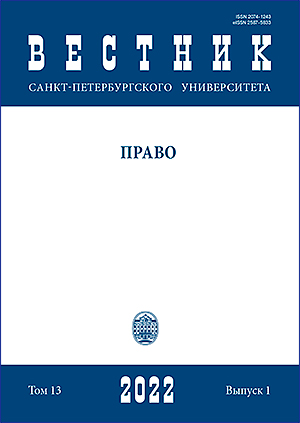Criminal liability for organizing a stable group of persons aimed at committing crimes in the field of computer information
DOI:
https://doi.org/10.21638/spbu14.2022.102Abstract
The article analyzes legal problems arising in connection with the establishment of criminal liability for organizing a stable group of persons for committing crimes in the field of computer information. The urgency of this topic is due to the negative dynamics of crimes associated with computer technology and committed by criminal communities or organizations as well as the constant growth of damage from them. The author evaluates the current criminal law measures to counter organized cybercrime, identifying their shortcomings. The provisions of domestic and foreign criminal legislation were analyzed, which made it possible to identify some legal gaps and identify ways to overcome them. The article proves that the Criminal Code of the Russian Federation does not fully cover cases of the creation of organized criminal groups aimed at committing illegal activities in the field of computer information. In particular, responsibility is not differentiated between a group of persons by prior conspiracy and an organized group; the category of crimes and the absence of the purpose of making profit do not allow qualifying the act as committed by a criminal community or a criminal organization. It is advisable to recognize the very fact of the creation of illegal organized formations as a separate tort, as is done in the legislation of individual countries of the “common law” legal family, as well as in domestic norms regulating countering terrorism and extremism. It is proposed to include in the Criminal Code of the Russian Federation a norm providing for responsibility for organizing a stable group of persons aimed at committing crimes in the field of computer information. The wording of the corresponding article has been formulated, which can be used as a recommendation when improving legislation.
Keywords:
computer information, computer crime, organized group, criminal community, cybercrime, public safety
Downloads
References
Downloads
Published
How to Cite
Issue
Section
License
Articles of "Vestnik of Saint Petersburg University. Law" are open access distributed under the terms of the License Agreement with Saint Petersburg State University, which permits to the authors unrestricted distribution and self-archiving free of charge.






